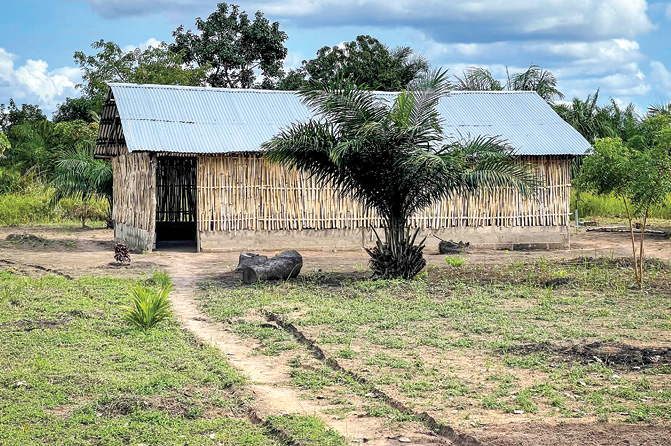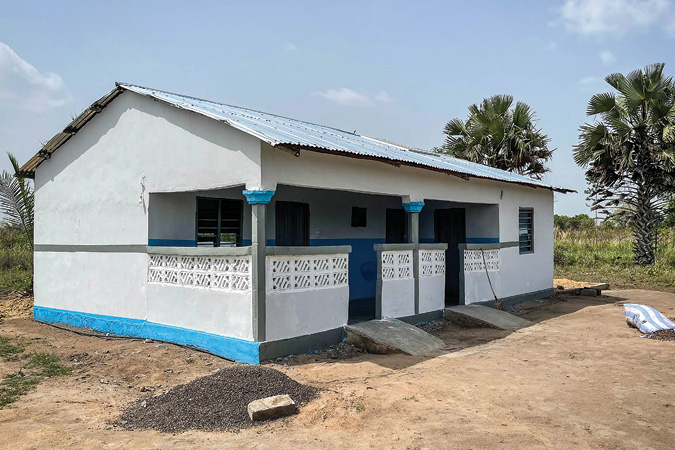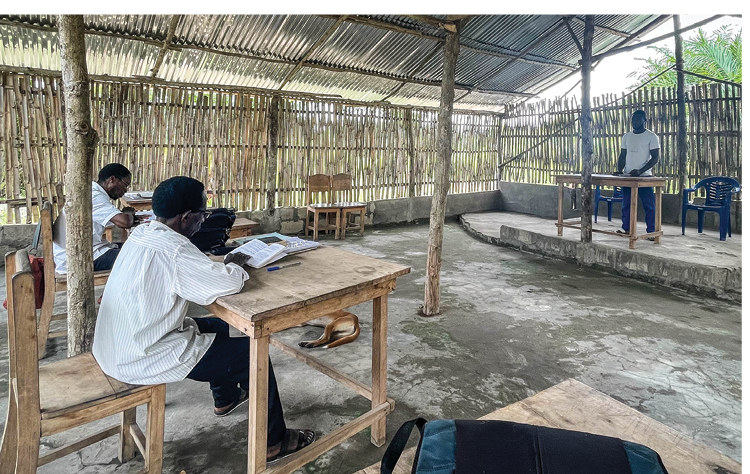In this series, those involved with CLC foreign missions profile one aspect of our overseas endeavors.
Recently I concluded a Bible class series on the Ten Commandments at the main church here in Lomé, Togo. In the last class, we reviewed the Ten Commandments, the fact that none of us have perfectly obeyed them, and that failing to keep even one makes us guilty. (James 2:10) I asked what the solution was to our failure. What is your answer? The one answer I got from them was that we should keep the commandments! I hope you thought of Jesus’ death and resurrection as the solution.
The members of the congregation know the Gospel and that Jesus died in their place to pay for their sins. But this answer shows how strong the innate idea is that one must do something to be saved. It also reflects the fact that our churches have only been here some fifteen years and that Lutheranism is relatively unknown in West Africa. It also shows the importance of our work here.
I am preaching or teaching Bible class each Sunday, but my main work is as a seminary professor here. I am in the process of translating the Online Theological Studies courses written by Professor Emeritus David Lau into French. I then use these translations to teach seminary classes each week here in Togo. Being here and teaching these courses in person has been invaluable.
I am not a native speaker of French, so I do not always know if a word I chose is a common one. My students are not native speakers either, as they have learned French as a second language. Seeing first-hand the words and phrases they struggle with helps me improve the translations.
Early on we were studying a lesson in my French translation of Pastor John Schierenbeck’s Shadows and Substance, and the students reluctantly admitted not knowing a particular word. I couldn’t remember what the word meant myself, even though I had used it in the translation. I told them I didn’t know it either and had to look it up on my phone. That was a relief to them and from then on, they more freely admitted when they didn’t understand something–if the missionary had admitted ignorance, they could too!
Living here has also helped me to learn some of the false ideas that are common in African Christianity, such as the notion that God speaks to us through dreams. While we have examples of this in Scripture, God nowhere promises to do so. In fact, in Jeremiah 23:25-29 God condemns the prophets who speak of dreams, and instead points us to His Word. Seeing this tendency led me to add to our lessons a discussion of this passage and the dangers of focusing on dreams. This is something that probably would never come up in a class of seminary students who were life-long Lutherans.
Two of our students have been trained and have served as pastors before. Recently the head pastor here asked them how they saw our training compared to what they had received before. The elder said that we teach the Bible in much more depth. What he had received before was superficial and he sees now that the more he learns, the more there is to learn. The other had already said that our training was much more in-depth (see his profile in the November 2022 Lutheran Spokesman). He said he has felt like a burden has been lifted from his shoulders. He now understands that the ceremonial laws in the Old Testament are just shadows of Jesus (Colossians 2:16-17). Previously he had felt burdened to fast, to get others to fast and tithe, and so forth. He has learned that the Gospel of Jesus Christ is liberating, and not a burden at all! (Matthew 11:28-30)
A friend who attends another church was shocked when I told him I never fast. He asked me why, then, the Old Testament commands people to fast. This shows how most churches here do not distinguish correctly between the Law and Gospel, nor do they understand that the ceremonial and civil laws were only given to the Israelites as shadows to point us to Jesus. Another friend told me his pastor was angry at him because he had other commitments and couldn’t join the church for a week of fasting and prayer.
Pastors here love to quote the Old Testament. While it is God’s Word, they often take it out of context and misapply the Law. For example, most churches require a tithe (or more!). One of our pastors told me his sister sometimes asks to borrow money. He doesn’t just give it to her but digs into what it is for. She admitted that the church she attends was demanding that she give more money. Here people often go into debt to give money when they are told that God demands it, rather than learning that “God loves a cheerful giver.” (2 Corinthians 9:7)
The harvest work in Africa (and the rest of the world) is plentiful, but the workers are few. My presence, the resident work of Missionary Bruce Naumann as seminary professor in Tanzania, the travels of Missionary Todd Ohlmann, and the work of several part-time CLC missionary pastors is invaluable. There is no substitute for in-person instruction and encouragement for our fellow pastors overseas. Keep our work in your prayers and support it through your offerings to the CLC general fund (but only cheerfully and not as an obligation!)




is a full-time foreign missionary for the CLC.

